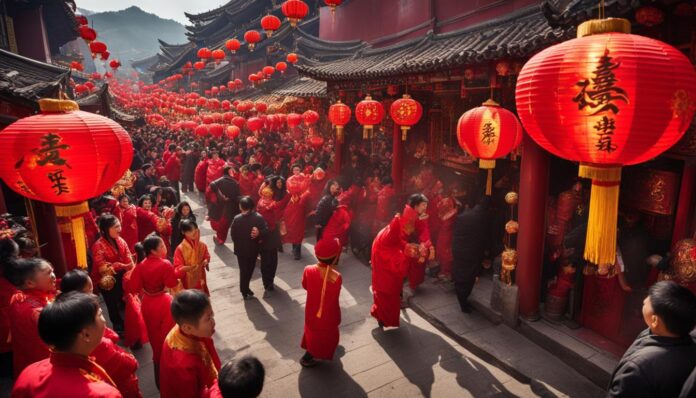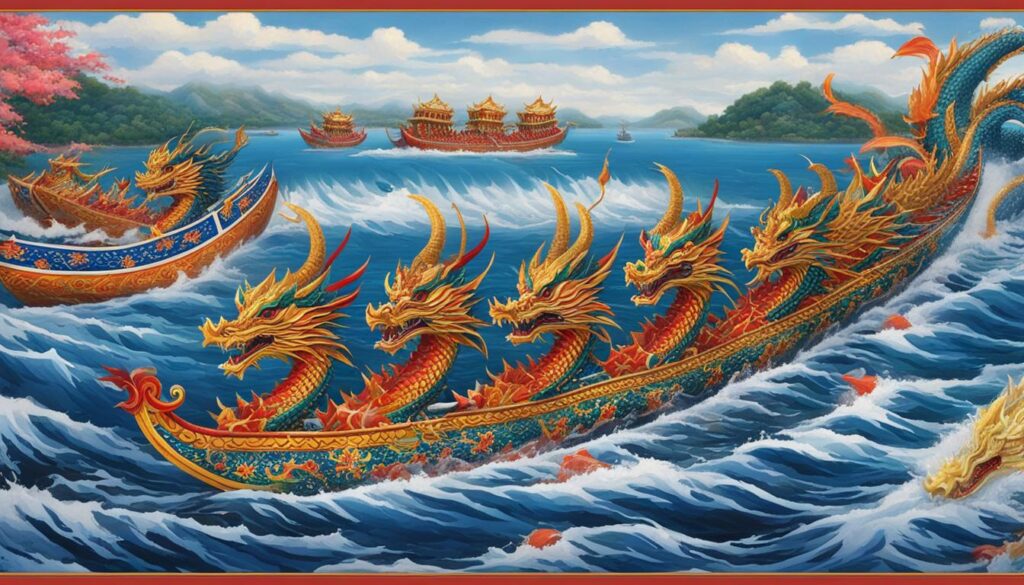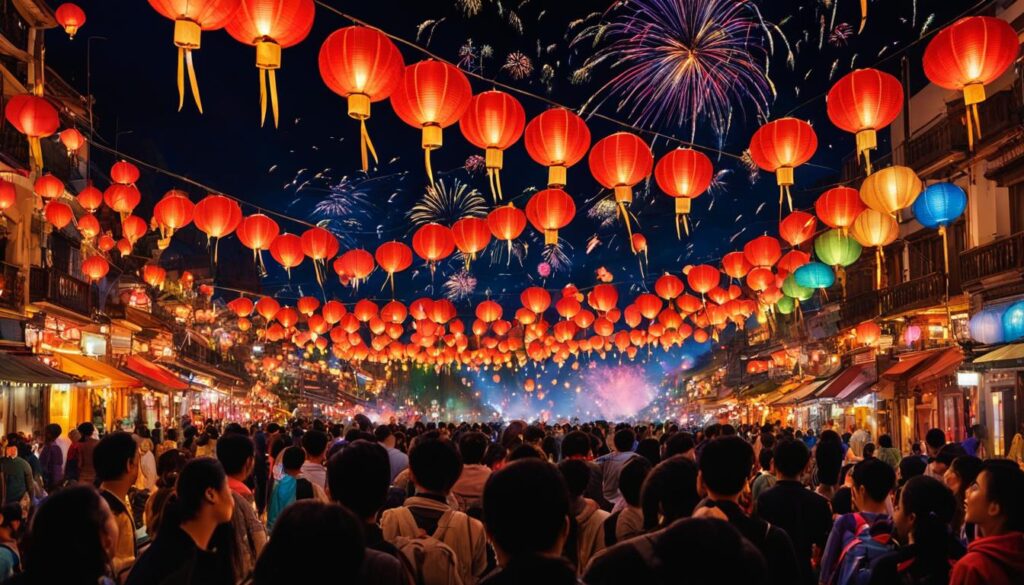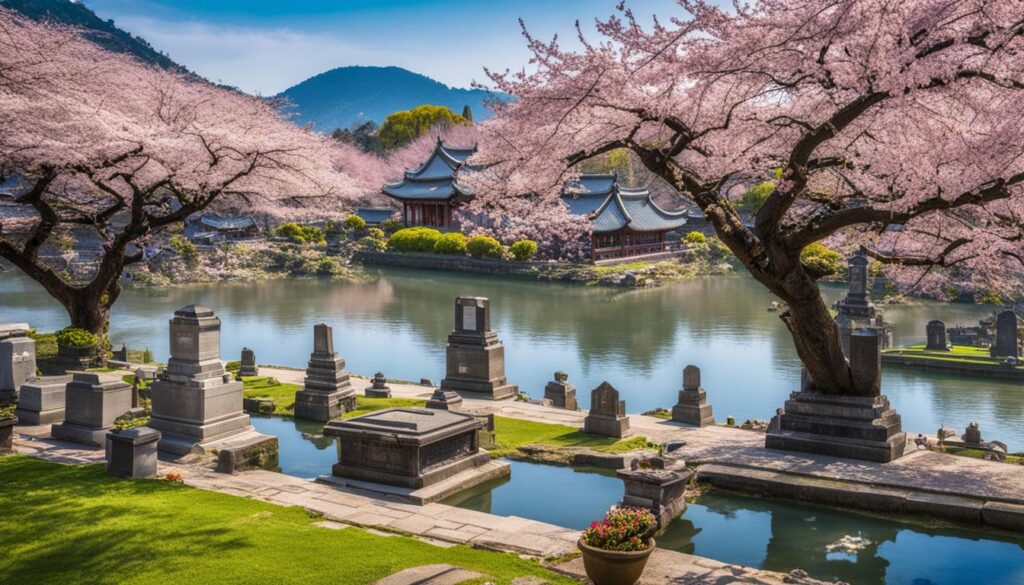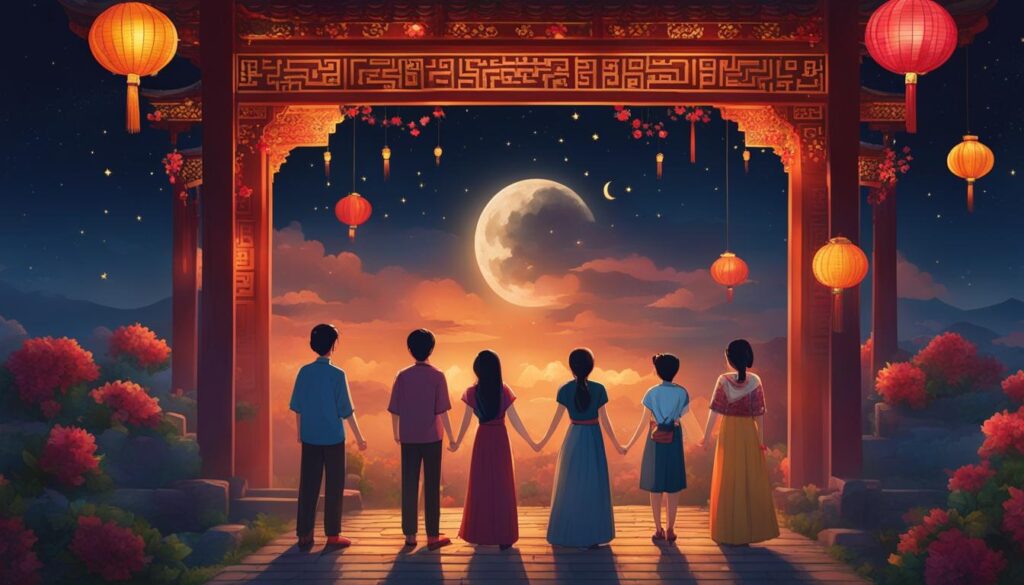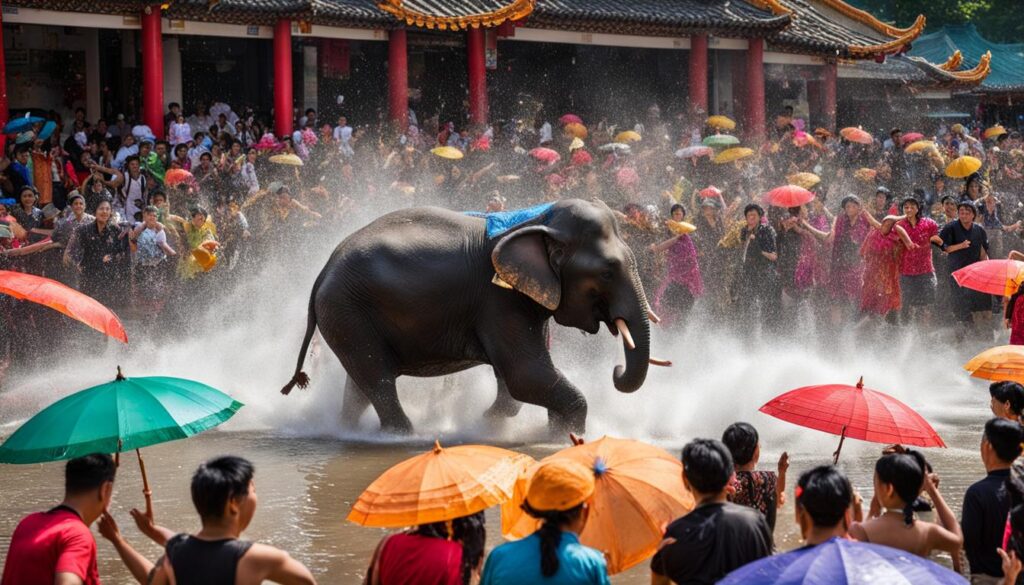China is a country rich in culture and traditions. While many people are familiar with the popular festivals like Chinese New Year and the Mid-Autumn Festival, there are many lesser-known festivals and cultural events that offer a unique insight into the vibrant traditions of China. In this section, we will introduce you to the offbeat and hidden gems of China’s cultural experiences that are not widely celebrated outside the country. If you’re looking to discover more about China beyond its famous landmarks, read on to learn about some of the lesser-known festivals and cultural events in China.
What are some lesser-known festivals and cultural events in China? Let’s find out.
The Dragon Boat Festival
Experience the energetic and vibrant celebrations of the Dragon Boat Festival, one of the most popular Chinese festivals that takes place annually on the 5th day of the 5th lunar month. Steeped in rich history and tradition, the Dragon Boat Festival offers a glimpse into the cultural heritage of China through colorful dragon boat races, delicious zongzi (sticky rice dumplings) and customary rituals.
Legend has it that the festival originated to honour the patriotic poet, Qu Yuan, who drowned himself in the Miluo River as a symbol of protest against corruption. The locals raced in their boats to retrieve his body, and since then, dragon boat races have become a significant part of the festivities.
The Dragon Boat Festival is a celebration of national significance, spreading the spirit of patriotism, national unity, harmonious society and pushing forward traditional Chinese culture… it is the common spiritual wealth of the Chinese nation. – Xi Jinping
The festival is celebrated across China, with various customs unique to different regions. During the festival, the cities come alive with processions, music, dance, drums and a burst of colors. The Dragon boat races, where teams of rowers paddle with rhythm to the beat of a drum, are the highlight of the celebrations. Traditionally, the race winners were believed to be blessed with good luck and prosperity, and the race has since become a popular sport in China.
Customs and Traditions
The Dragon Boat Festival is also known as Duanwu Festival and is observed with many customs and traditions. Some of the popular customs include:
| Custom | Description |
|---|---|
| Dragon Boat Races | Colourful boats with dragon head and tail race in water, with the sound of drums and cheers of onlookers. |
| Zongzi | Sticky rice dumplings, either savory or sweet, wrapped in bamboo or reed leaves. |
| Wearing Fragrant Pouches | Small scented bags adorned with silk thread, hung around the neck, to ward off diseases and evil spirits. |
| Drinking Realgar Wine | A traditional custom where people drink wine infused with realgar powder, believed to ward off evil spirits and diseases. |
| Hanging Calamus and Wormwood | Calamus and wormwood are hung on doors to ward off insects and mosquitoes. |
Experience the thrill and excitement of this fascinating festival, and immerse yourself in the cultural heritage of China!
The Lantern Festival
Experience the magic of the Lantern Festival, a captivating celebration that dates back over 2,000 years. This traditional Chinese event is held on the 15th day of the first lunar month, signaling the end of the Chinese New Year. During this festival, vibrant displays of lanterns illuminate cities across China, creating a mesmerizing spectacle that is not to be missed.
The history and symbolism behind the Lantern Festival is remarkable. In ancient times, people used lanterns to signal information across long distances. Today, these same lanterns symbolize good luck, prosperity, and happiness.
The festival is celebrated in various ways across China, with each region offering unique traditions and customs. One of the most prominent events is the release of sky lanterns, which is said to bring good luck for the coming year. Other popular activities include solving lantern riddles, performing lion and dragon dances, and enjoying delicious glutinous rice dumplings.
Qingming Festival
The Qingming Festival, also known as Tomb-Sweeping Day, is a Chinese festival that is celebrated on the 15th day after the Spring Equinox (usually around April 5th). This day is dedicated to honouring and remembering ancestors, as well as paying respects at their gravesites.
During this festival, families traditionally visit the gravesites of their ancestors to clean and offer sacrifices such as food, burning incense, and paper money. It’s a day to show respect and gratitude towards deceased loved ones, and to reinforce the importance of family ties and filial piety.
The Qingming Festival also has some unique customs, including flying kites to send messages to ancestors and eating qingtuan, a glutinous rice cake filled with sweet bean paste and shaped like a green ball. These customs add to the festivity of the event and provide another way to connect with traditional Chinese culture.
“The Qingming Festival is a time to pay tribute to our ancestors and express our gratitude for the lives they’ve given us.”
Mid-Autumn Festival
Get ready to immerse yourself in one of the most enchanting and colorful festivals in China – the Mid-Autumn Festival. Celebrated on the 15th day of the 8th lunar month, this joyous event holds great importance in Chinese culture and traditions.
At the heart of the festivities are mooncakes, an essential part of the celebrations. These sweet, round pastries are often filled with lotus seed paste, red bean paste, or other sweet fillings.
The festival is also renowned for its mesmerizing lantern displays that light up the streets and homes across China. From traditional lanterns in various shapes and sizes to modern interpretations, the lanterns add charm and vibrancy to the already sparkling atmosphere.
The Mid-Autumn Festival is also a time when families gather to enjoy each other’s company under the full moon, a symbol of unity. Additionally, performances of the famous Lion Dance and Dragon Dance are common during the festival, adding to its exuberance and excitement.
Overall, the Mid-Autumn Festival is an unmissable experience for anyone seeking to dive deeper into China’s rich cultural heritage and traditions.
Water Splashing Festival
Head to China’s Yunnan province to experience the Water Splashing Festival, which takes place in mid-April and lasts for three days. This joyous event is celebrated by the Dai minority, who believe that water is a symbol of purity and renewal. The festival coincides with the Dai New Year and marks the end of the dry season.
During the festival, locals and visitors alike participate in a massive water fight, throwing buckets of water and using water guns, hoses, and even elephants to drench each other. The water is believed to cleanse the body and soul, washing away bad luck and misfortunes from the past year.
The Water Splashing Festival also involves a series of vibrant cultural activities, including parades, dragon boat races, traditional dances, and music performances. Visitors can also savor the delicious local cuisine, including sticky rice cakes, steamed fish, and spicy meat dishes.
Water Splashing Festival Highlights
| Event | Description |
|---|---|
| Water-fight | The heart of the festival, where locals and visitors douse each other with buckets of water and water guns. |
| Elephant Bathing | Witness the stunning sight of elephants being washed and bathed in the river during the festival. |
| Dragon Boat Races | Cheer on the contestants as they race their elaborately decorated dragon boats to the beat of drums and gongs. |
| Local Cuisine | Savor the traditional flavors of Dai cuisine, including aromatic sticky rice, grilled fish, and spicy curry dishes. |
| Parades and Performances | Enjoy the colorful processions, intricate dances, and musical performances showcasing the rich cultural heritage of the Dai people. |
If you’re looking for an unforgettable cultural experience, make sure to add the Water Splashing Festival to your bucket list. Book your trip in advance and prepare to get soaked in the jubilant festivities of this unique Chinese festival.
Naxi Ancient Music Festival
Uncover the enchanting melodies and cultural heritage of the Naxi people, a Sino-Tibetan ethnic group, at the Naxi Ancient Music Festival. If you’re a music lover looking for a unique and offbeat cultural experience, this festival should be on your bucket list. Held annually in the ancient city of Lijiang, Yunnan, the Naxi Ancient Music Festival is a celebration of traditional Naxi music, which has a history dating back over 1,000 years and is designated as a Masterpiece of the Oral and Intangible Heritage of Humanity by UNESCO.
The festival showcases traditional Naxi music performances, rituals, and ceremonies, providing an immersive experience into the rich culture and heritage of the Naxi people. The highlight of the festival is the Baisha Ancient Music performance, which features a unique ensemble made up of stringed instruments, flutes, and wooden percussion.
Aside from the music, visitors can also witness other traditional Naxi practices, such as the Dongba shamanistic ritual, which involves the use of ancient Naxi scriptures, totems, and incense to communicate with the spirits.
Overall, the Naxi Ancient Music Festival is a hidden gem of China’s cultural experiences, allowing visitors to immerse in a world of enchanting music and history. Don’t miss out on this opportunity to explore one of China’s lesser-known festivals.
Yi Torch Festival
Experience the Yi Torch Festival, an extraordinary and offbeat cultural event celebrated by the Yi ethnic minority in China. Held in the Liangshan Yi Autonomous Prefecture of Sichuan Province, this festival pays homage to the mythical hero, Atilaba, by lighting torches to represent his spirit and prosperity.
The centerpiece of the festival is the stunning torch-lit procession, where groups of torchbearers dress in traditional Yi attire and parade through the streets. The dancing and chanting of the torchbearers create a mesmerizing spectacle that is sure to leave you spellbound.
During the festival, there are also traditional Yi dances, songs, and ethnic sports competitions, showcasing the rich cultural heritage of this ethnic minority group.
Yi Torch Festival Table
| Date: | June 24 or 25 (lunar calendar) |
|---|---|
| Location: | Liangshan Yi Autonomous Prefecture, Sichuan Province, China |
| Activities: | Torch-lit procession, traditional dances, songs, ethnic sports competitions |
| History: | Atilaba, a legendary figure who unified the Yi people, is said to have used fire to expel evil spirits and bring prosperity to the region, inspiring the tradition of lighting torches during the festival. |
Don’t miss out on the opportunity to witness this unique and mesmerizing cultural marvel during your travels in China.
Shoton Festival
Experience the beauty of the Shoton Festival, a local festival in China that takes place in Lhasa, the capital of Tibet Autonomous Region. The festival, also known as the Yogurt Festival, is celebrated annually from the last day of the sixth month to the fourth day of the seventh month in the Tibetan calendar.
The Shoton Festival has religious roots and is a celebration of the end of the monks’ retreat period during the summer months. As a result, there is a distinctive religious flavor to the event, with the highlight being the unveiling of a giant thangka of the Buddha at Drepung Monastery. Visitors can witness the giant thangka being displayed against the hillside at the monastery early in the morning.
Tibetan Opera Performances
In addition to the giant thangka display, the Shoton Festival features fascinating Tibetan opera performances called Ache Lhamo. The performances involve elaborate costumes and masks that symbolize various characters, with actors singing, dancing, and even performing acrobatic feats. These performances are held in different venues around Lhasa, such as Norbulingka Park and the Potala Palace square.
Yogurt and Local Delights
The Shoton Festival is a perfect opportunity to indulge in local delicacies. One of the key foods on offer during the event is Shoton, a sweet yogurt that is traditionally made by locals. Festivities also include a wide variety of traditional Tibetan dishes to tantalize your taste buds, such as yak butter tea, momos, and thenthuk.
Conclusion
Now that you’ve been introduced to the range of local festivals and cultural events in China, it’s time to explore and experience them for yourself. From the dragon boat races to torch-lit processions at the Yi Torch Festival, these lesser-known events offer a unique and offbeat glimpse into China’s rich cultural heritage. Immerse yourself in the vibrant traditions, and discover the hidden gems that make China’s cultural experiences truly special. Whether you’re a local or a traveler, these local festivals are a must-see and provide an unforgettable insight into China’s customs and traditions.
So, pack your bags and head to China to experience the enchanting world of local festivals and events. You never know what hidden gem you might discover.
Thank you for joining us on this journey. We hope you enjoyed learning about China’s local festivals and cultural events.




























